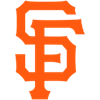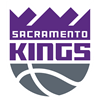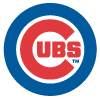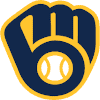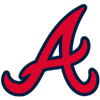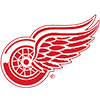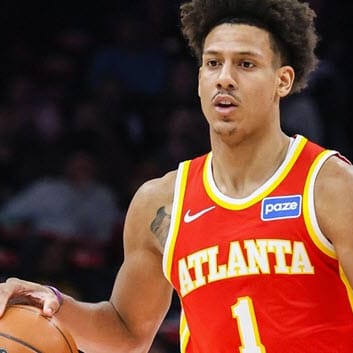PHOENIX SUNS
By Erik Siegrist
RotoWire Staff Writer
STATE OF THE FRANCHISE
After years of coming up empty in the playoffs under Mike D'Antoni the Suns parted ways with the coach and his pedal-to-the-metal offensive philosophy, instead turning the fourth-highest scoring team in the Association over to former Pistons assistant coach Terry Porter. Porter attempted to install a slower-tempo, more physical style of play with Shaquille O'Neal as its focal point.
The result wasn't quite a disaster, but it certainly wasn't what GM Steve Kerr had been hoping for. The Suns' roster lacked the personnel to adapt to Porter's system, and after limping out to a 28-23 start (good for ninth place in the competitive Western Conference) Porter was fired, getting replaced by Alvin Gentry. Gentry immediately re-installed D'Antoni's "Seven Seconds or Less" offense, and while the results in the won-loss column weren't much better than they'd been under Porter (Phoenix finished the season going 17-13) the team responded with consecutive 140-point explosions in Gentry's first two games, and ended the season on top of the NBA in scoring at 109.4 points per game.
Kerr was man enough to admit the O'Neal experiment hadn't worked and shipped him off to Cleveland in the offseason for little more than cap room, which he used to keep Steve Nash and Grant Hill in the desert. With Amar'e Stoudemire returning from his eye injury, Jason Richardson around for a full season and Leandro Barbosa putting last season's emotional roller coaster behind him, the Suns roster should once again be an embarrassment of riches for fantasy owners, but the lack of depth would seem to leave them no closer to the postseason.
PLAYING TIME DISTRIBUTION
Last season Nash's minutes per game actually fell below his chronological age, and while that trend will continue, the 35-year-old should still be able to handle 32-33 minutes at point guard. Goran Dragic should see 14-15 minutes a game behind him, though if he fails to develop Gentry could give some of those minutes to Barbosa. Richardson won't see the 38-plus minutes he saw in Charlotte but should still be in the 32-33 range. Hill has managed to stay on the court for 30-31 minutes a season during his Suns' tenure but there's no guarantee his run of good health will continue. Barbosa will mostly back up Richardson at shooting guard, but Gentry will spot him in where he can at the point and behind Hill at small forward. The Brazilian should be somewhere in the 25-27 range as a result. Stoudemire saw an uptick in his playing time last season before his eye injury, but will probably return to the 33-34 minute range from the power forward spot. Jared Dudley will see 15-16 minutes at the three (when the Suns go with a big lineup) and the four (when they go small). Louis Amundsen could struggle to see 13-14 minutes at power forward again as the club works in first-round pick Earl Clark. The Suns would like last year's top pick, Robin Lopez, to see at least 24-26 minutes as the starting center, but if he's not ready Channing Frye, who might be a better fit for the offense anyway, is capable of handling a similar workload.
PLAYER OUTLOOKS:
Center
Robin Lopez: Lopez's rookie season was a far cry from his brother Brook's in New Jersey, as he struggled to adjust to the pro game even without the pressure of being a starter. With Shaquille O'Neal now in Cleveland, Lopez is the Suns' best option for interior defense, but his showing in the Summer League didn't give any indication he was ready for a bigger role. Even if he does earn more minutes his value will come solely in rebounds and blocks, as he's a poor fit for the "Seven Seconds or Less" offensive philosophy.
Channing Frye: The seven-footer has seen his production drop for four straight seasons, and he was never able to carve out a regular role for himself in Portland. Coming to Phoenix may revive his career, however, as unlike many other teams the Suns may be more forgiving of his lack of toughness and rebounding if his outside shooting can provide matchup problems on offense. With Robin Lopez not exactly a lock for big minutes at center there's an opportunity for Frye to win the starting job outright and return to the level of production he enjoyed as a rookie.
Forward
Amar'e Stoudemire: One of the most dominant offensive big men in the game, Stoudemire was felled by a detached retina which cost him a large portion of the season and for which he'll have to wear protective eyewear for the reminder of his career. Assuming he adjusts to the new gear, Stoudemire should bounce back both from the injury and his somewhat disappointing showing in Terry Porter's slower paced offense that featured Shaquille O'Neal at Stoudemire's expense. With O'Neal and Porter gone, Stoudemire's a good bet to put up top-10 overall fantasy numbers given not only his scoring, rebounding and blocking ability but his excellent free-throw and field-goal shooting as well.
Grant Hill: Hill apparently saved up all his good health days for the end of his career, as he played a full 82-game schedule for the very first time in 2008-2009. Like most of the Suns his numbers enjoyed a boost once Alvin Gentry replaced Terry Porter as coach, and Hill averaged 15.0 points, 5.6 boards, 2.7 assists and 1.3 steals with his usual excellent percentages in 24 March/April games. Chances are he won't be able to duplicate that pace over a full season even if he stays in one piece, as the Suns are likely to take a look at some of their younger players (particularly first round pick Earl Clark) if and when they fall out of playoff contention.
Earl Clark: A 6-10 forward that's too quick for opposing fours and too strong for threes, Clark has a solid post-up game, and his ball-handling is good enough that he's even played some point forward. On the downside, his outside game needs work, and his moves are not especially refined and might not work as well against the athletic defenders in the NBA. Clark would be a nice sleeper if/when the Suns go into re-building mode, but since they re-signed both Steve Nash and Grant Hill it appears Phoenix is trying to win now and may limit Clark's minutes. But keep an eye on him in case the Suns struggle.
Jared Dudley: No player enjoyed the Suns' midseason coaching switch more than Dudley. Acquired as a spare part in the Jason Richardson deal, Dudley found himself getting a regular spot in Alvin Gentry's rotation after Amar'e Stoudemire's injury and responded with 8.3 points and 4.0 boards in 20.5 minutes a night through March and April. With Stoudemire back and Earl Clark now around to fight for the same backup minutes at small and power forward, last year's kick to the finish will probably represent a high water mark for Dudley's time in Phoenix.
Louis Amundsen: The hustling Amundsen emerged as a fan favorite and played in a career-high 13.7 minutes per game thanks in part to Amar'e Stoudemire's eye injury. He's the kind of high-energy player who could have a surprising season in the Suns offense, but he's too far down the depth chart to get the chance.
Taylor Griffin: Phoenix is quickly becoming the home for lesser NBA siblings, as Taylor (brother of first overall pick Blake Griffin) joins Robin Lopez (brother of the Nets' Brook Lopez) in the Suns' front court. He'll likely spend most or all of the season in the developmental league.
Guard
Steve Nash: Nash might not be the MVP-level player he once was, but he'll still shoot 90-plus from the line, 50-plus from the floor, hand out close to 10 assists and knock down 100-plus threes. Also keep in mind last year's numbers were held down by Terry Porter's system for the first half of the season and also Amar'e Stoudemire's injury for the final third. Nash is now 35 years old, so age-related decline is probably unavoidable, but as long as the team lets him push the pace, he's a lock to be a top-five point guard should he remain healthy.
Jason Richardson: Richardson struggled through a tough season that included a trade and a suspension following a couple of moving violations (for which he'll also miss the first two games of this season), but the future looks much brighter. He averaged 18.8 points, 4.6 rebounds and 2.0 threes in 28 February and March games after Alvin Gentry took over as coach, and a full season of Steve Nash setting him up in the "Seven Seconds or Less" offense could mean another three-point shooting title (he sank 243 threes in '07-'08 with Charlotte). He's even improved one of the weak spots in his game, topping 75 percent free-throw shooting for the second straight season and hitting from the floor at a career-best 48.8-percent rate in his 58 games with Phoenix last season. Richardson is the kind of player who can win you a fantasy league, as he has the potential to significantly outproduce his draft slot.
Leandro Barbosa: The death of his mother hung a pall over Barbosa's season, and his production took as much of a hit under Terry Porter as any Suns player. Once Alvin Gentry replaced Porter, however, the clouds seemed to part a little, and Barbosa averaged 15.9 points, 3.1 assists, 1.5 steals and 1.4 threes over his final 30 games. The explosive combo guard heads into camp in a much better frame of mind this season, and there's no reason he can't duplicate the kind of numbers he delivered in 2007-08, except for the 18.1 points per game - unless something happens to put him in the starting lineup at shooting guard instead of Jason Richardson.
Goran Dragic: Dragic was brought in to be the eventual replacement for Steve Nash at point guard, but he didn't show much as a rookie to indicate he'd be ready for the job any time soon. With Nash signed to an extension the Suns seemed to reach the same conclusion, so the Slovakian will have a couple more seasons to learn the ropes and adjust to the North American game.
Alando Tucker: The second-year swing man didn't get much of a chance last season to show what he can do thanks to a knee injury, and he saw just 30 games of action. As with any shooter in the Suns offense he's worth a fantasy roster spot if he sees regular minutes, but something would have to happen to Jason Richardson or Leandro Barbosa for him to get them.
Sleeper:
Channing Frye: Frye showed as a rookie he's capable of scoring points (12.3 ppg with the Knicks in 2005-06) but his coaches since have seen his length and been disappointed in his lack of rebounds and blocks rather than appreciating the things he does well. The Suns' system is one that fits his skill set though, and Robin Lopez's miserable rookie season makes him a more likely candidate for the bench than a starting job. Frye won't be one of Steve Nash's top options, but if he gets minutes Nash will find him on the court when he's got a mismatch against a smaller or slower defender. In which case, Frye could easily return to the level of production (12 points, six boards) he got in his first crack at the NBA.Bust:
Grant Hill: Hill's surprising durability and high-level play is a great story, and hopefully it will continue in 2009-10. But he'll turn 37 in October, and his per-game scoring average has declined each of the past five seasons.
Article first appeared on 10/1/09








